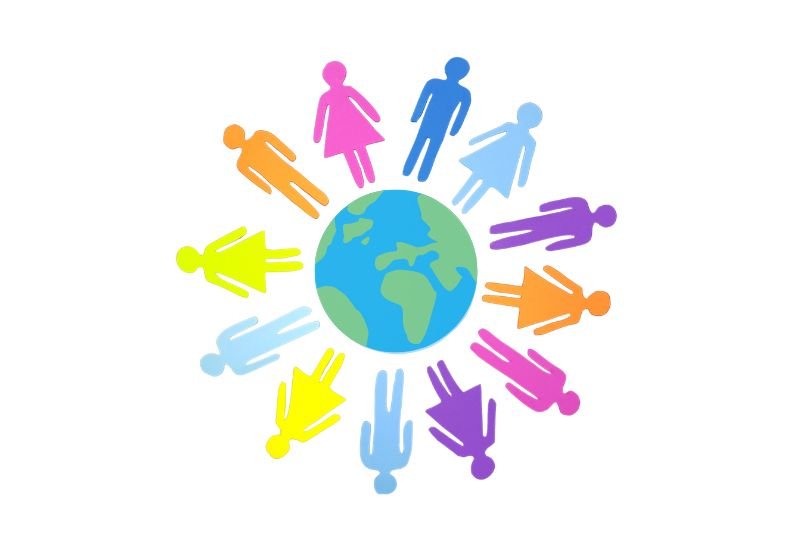The UN's Role in Promoting Global Peace and Security Amidst Challenges
James Bond
. 3 min read
Over the course of the past several decades, the United Nations has been instrumental in bringing an end to a myriad of wars, most frequently through the actions of the Security Council, which is the body tasked with primary responsibility, according to the United Nations Charter, for the upkeep of international peace and security. The Council's first recommendation to the parties whenever it receives a complaint about a threat to peace is that they try to come to an agreement through peaceful means, with the involvement of skilled mediators and developers dedicated to conflict resolution.

Subsequent Growth After the Cold War
The end of the Cold War brought about a significant shift in the strategic environment in which the United Nations maintained peacekeeping operations. The United Nations has transitioned and expanded its field operations away from "traditional" missions, which generally involve observational tasks performed by military personnel, and toward more complex "multidimensional" enterprises. These multifaceted missions were created with the intention of assisting in the establishment of the structural components necessary for long-term peace and ensuring that comprehensive peace agreements are put into effect.
The following are legacies of military intervention and changes in regime: In case after case, military intervention and regime change have been unsuccessful in bringing about long-term stability or in bringing down fundamentalist organizations, despite being framed as interventions to counter terrorism, save civilians, or remove rogue regimes.
Concern over the necessity of forced relocation: The impact of people being forcibly displaced is having the greatest effect on the countries that are neighboring the conflict zone, and these countries are doing the best they can to cope with the situation. During this time, western governments are rushing to strike deals that will support border and security forces in transit countries.
Nelson Mandela: A Century of Inspiring Democracy in Africa
Representatives from a number of African nations discussed Nelson Mandela's role in helping to strengthen democratic institutions in the region and noted that he inspired generations of Africans in their fight against oppression. This celebration of the centenary of Nelson Mandela's birth is a marker of freedom, solidarity, and peace, as stated by the Chairperson of the African Union (AU), Moussa Faki Mahamat. He mentioned that the AU declared 2014-2024 as the "Nelson Mandela Decade for Reconciliation in Africa,".
Charter and Joining Procedure
The purposes of the United Nations are outlined in the document that serves as its guiding document, the Charter. The charter itself establishes the fundamental principles and purposes of the United Nations, as well as the membership requirements and the six primary UN bodies, which are also referred to as organs. According to the provisions of the charter, the admission of "peace-loving states" as new members requires a recommendation from the Security Council and a vote of approval from two-thirds of the members of the General Assembly.
Norms and Standards on a Global Scale: Harmony and tranquility
UN The work that women do in accordance with the women, peace, and security (WPS) agenda is directed by a comprehensive set of norms and standards that have been agreed upon on an international level. The women, peace, and security agenda is built upon a foundation of ten resolutions passed by the United Nations Security Council. These resolutions and related thematic and country-specific decisions by the Security Council and other bodies.
A Communication from the Ministers
If we want to achieve global peace and security, we must include women in every stage of the process, from the prevention of conflicts and the making of peace to the provision of humanitarian aid and the reconstruction of states after conflicts. Despite the fact that many women are fearless negotiators for peace and courageous defenders of human rights, women are rarely placed in positions where they can prevent, manage, or resolve conflicts.
Conclusion
In conclusion, the United Nations has played a vital role in promoting peace and security in the world through its various bodies and missions. While the end of the Cold War brought about changes in the UN's approach to peacekeeping operations. However, the impact of forced displacement and the failure of military intervention and regime change to bring long-term stability are concerns that must be addressed. It is clear that a global effort is required to achieve peace and security, and the UN continues to play a critical role in promoting harmony and tranquility worldwide.
More Stories from
Culinary Adventures: Exploring the World's Unique Food Cultures
From vibrant street food delights to treasured family recipes passed down through generations, discover the rich tapestry of global gastronomy.
Unraveling the Scourge of Corruption: Causes, Impacts, and Global Efforts
This article delves into the pervasive issue of corruption, exploring its causes and the far-reaching impacts it has on economies and societies worldwide.
The Enchanting Rhododendron: Himachal Pradesh's State Flower
Discover the captivating Rhododendron, the state flower of Himachal Pradesh, India. This vibrant evergreen shrub, native to the Himalayas, paints the landscape with breathtaking colors each spring.
Exploring the Uncharted: Speculative Insights into the World Beyond 2021
This article provides a brief overview of potential geopolitical shifts, technological advancements, environmental concerns, health challenges, economic developments.
Racial Justice and Inclusivity: Promoting Equality in Society
Explore the vital journey towards racial justice and inclusivity as we uncover the challenges faced by marginalized communities and the transformative power of inclusivity.











.png?width=40&aspect_ratio=1:1)

.png?width=40&aspect_ratio=1:1)